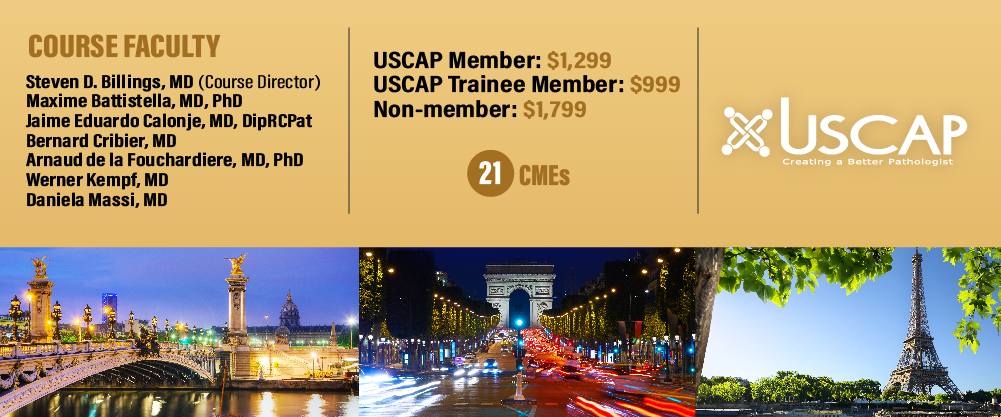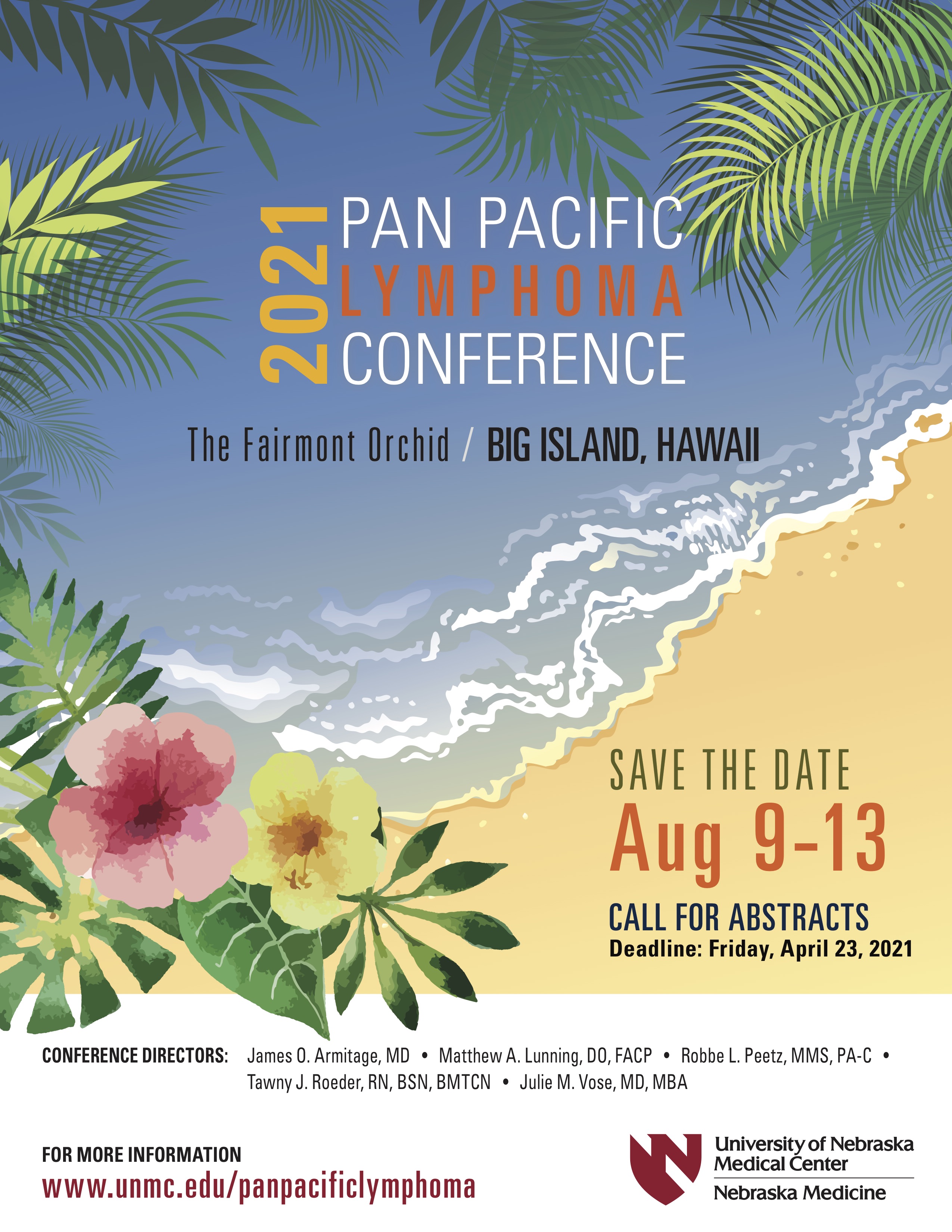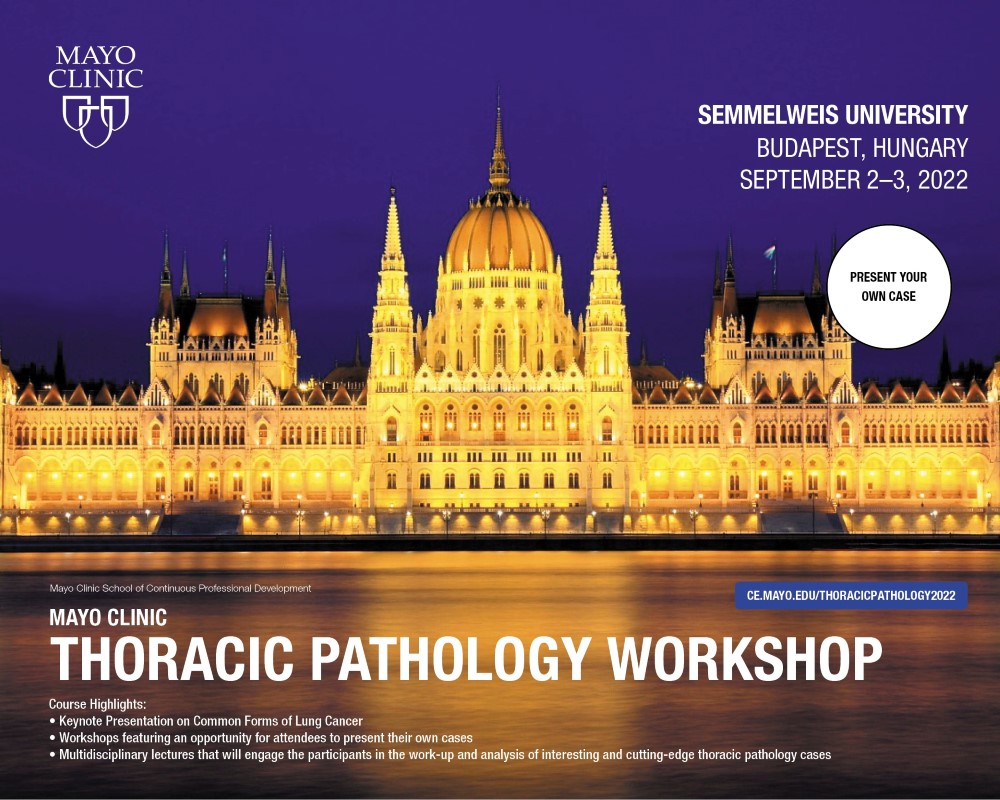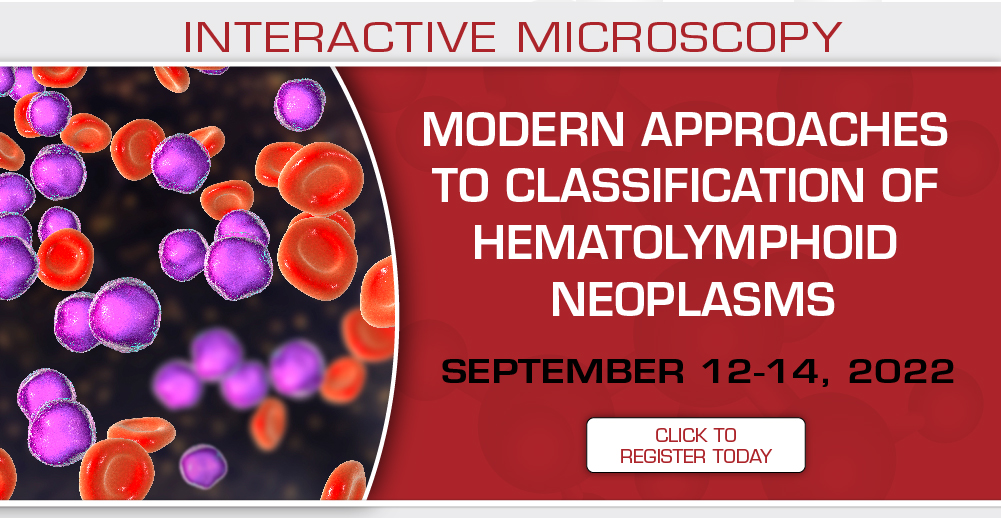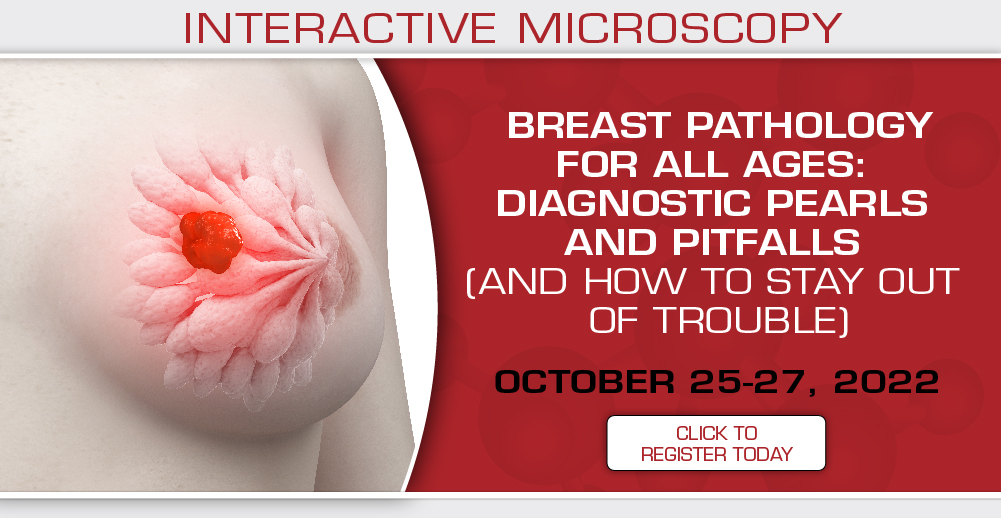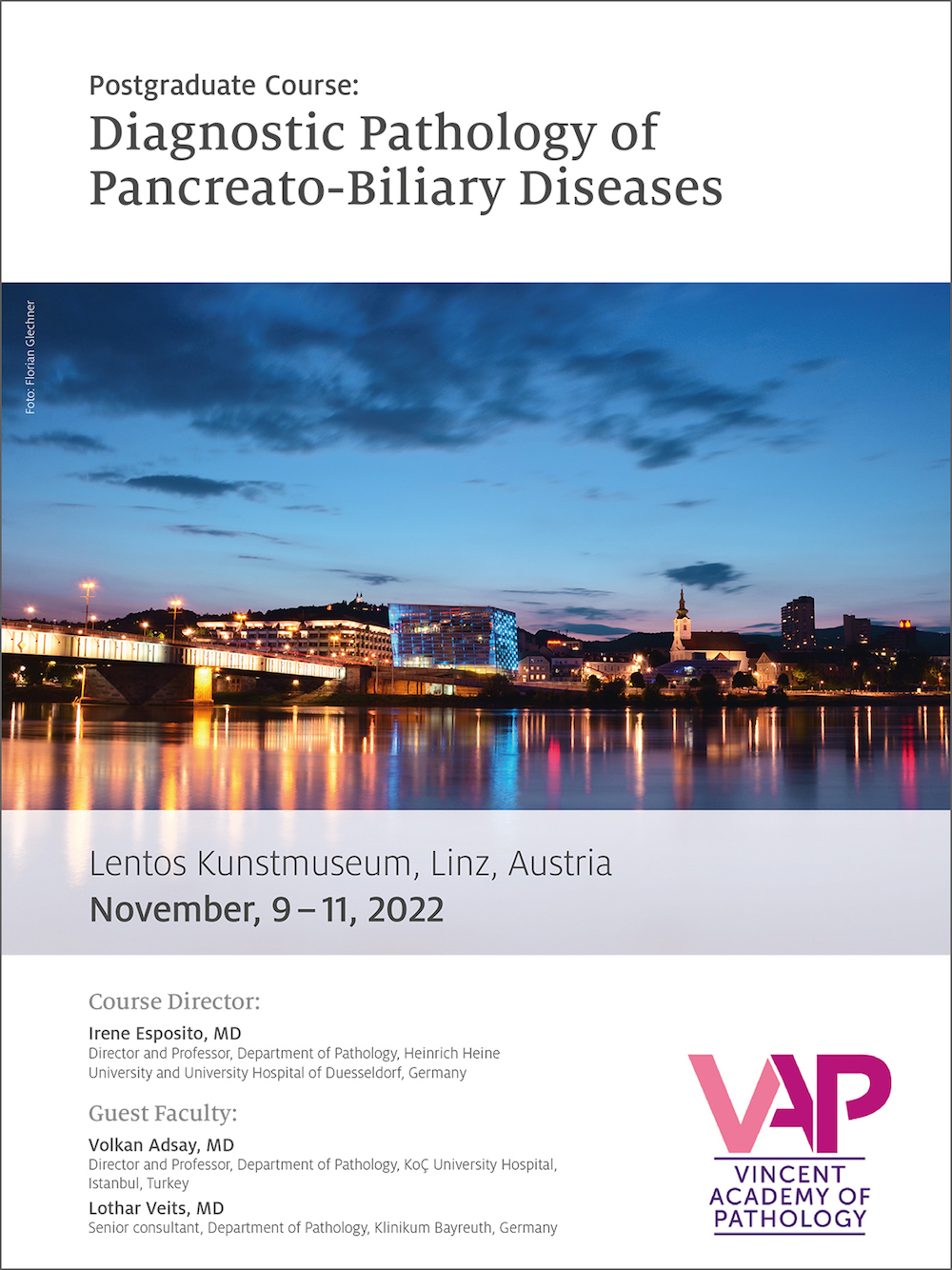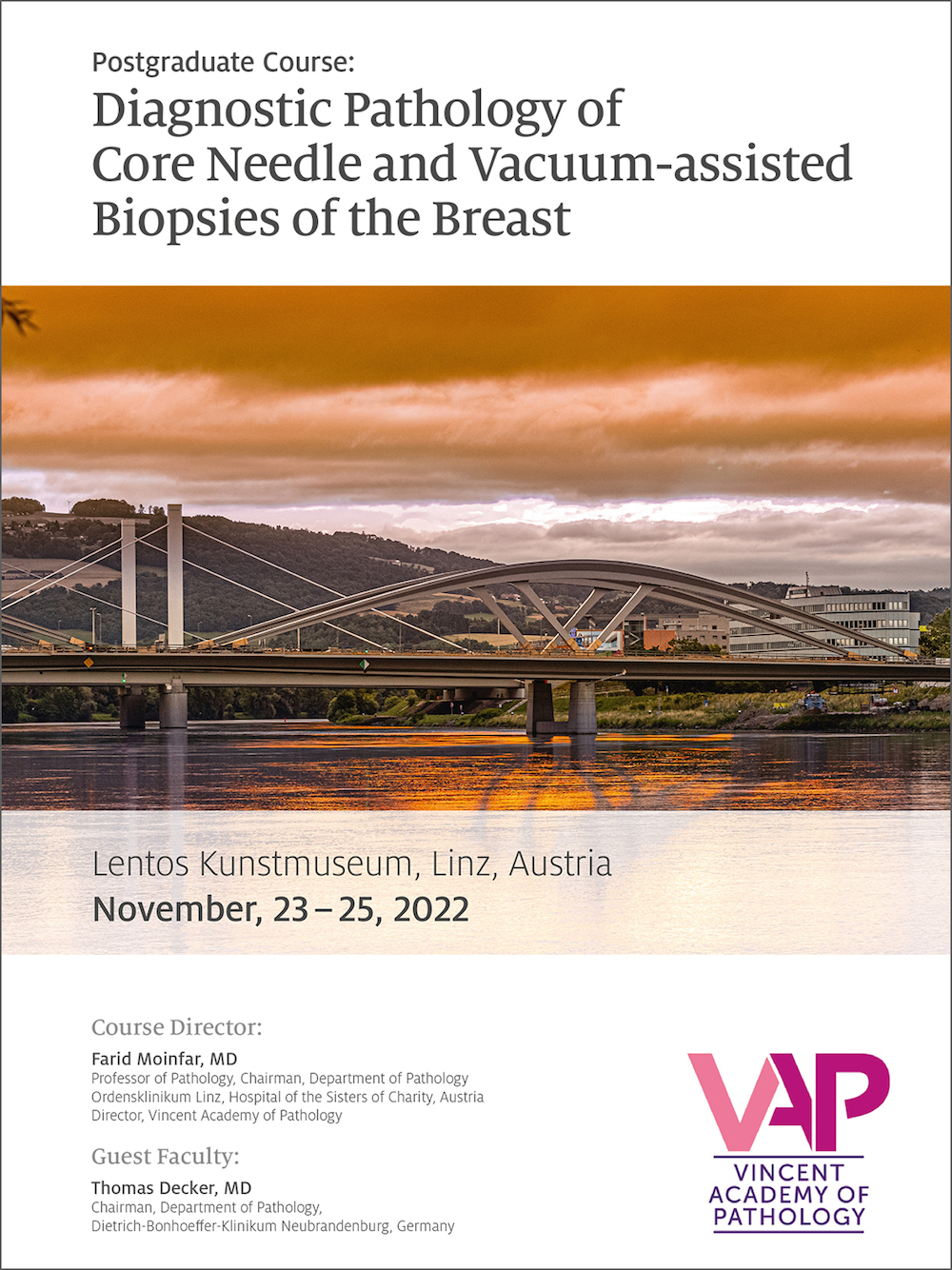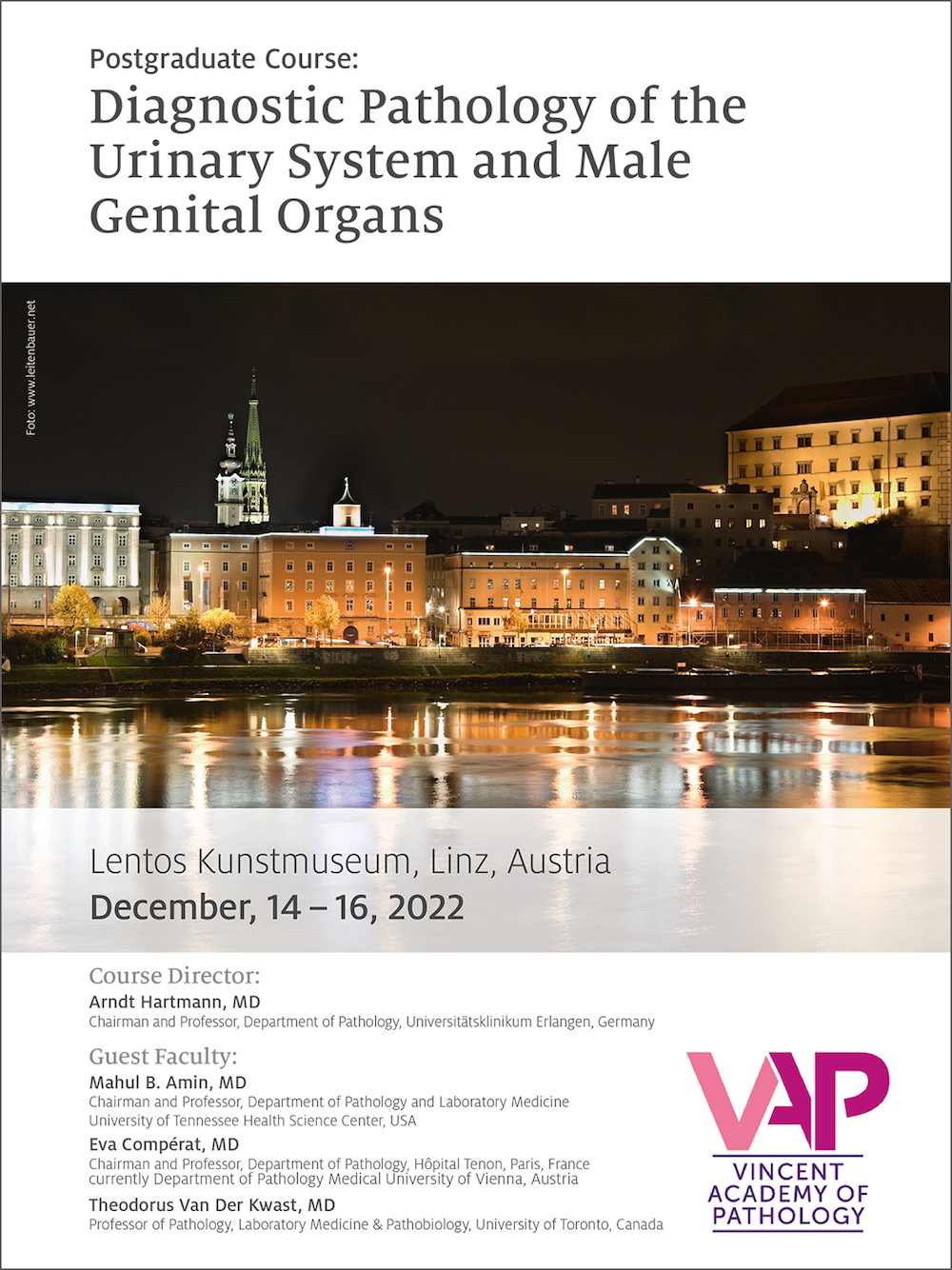Advertise your Pathology Conferences and Webinars with us!
To advertise on this popular page, email your text, graphics and contact information to Ads@PathologyOutlines.com. If no response within 1 business day, please resend and CC Rosie@PathologyOutlines.com. Ads are posted until the conference / webinar date. Email us once you have the date and we will create a Save the Date ad to use until you get your official ad; there is no additional charge for changes or for rescheduling due to the COVID-19 pandemic. After posting, we will send you a confirmation email and invoice; please use the link at the bottom of the invoice to pay. Prepayment may be required.
We have these options for posting:
(a) $700 for a highlighted listing (most of the ads below are highlighted listings) with graphics, text and links
(b) $400 for a one line listing (date, location, title and link)
(c) $1,100 to add a standard E-blast or social media posting (more information)
(d) $750 to add a banner for one month on the Conferences page (top: 728x90, side: 300x250)
(e) $4,200 for a package of 6 highlighted listings plus one E-blast or social media posting plus an Organization listing
(f) Contact us for additional promotional packages at (248) 646-0325 or Ads@PathologyOutlines.com.
Links to all recent posts are included in an E-blast sent biweekly to 7,128 subscribers for no additional charge. Frequently asked questions Testimonials
Map of US with regions
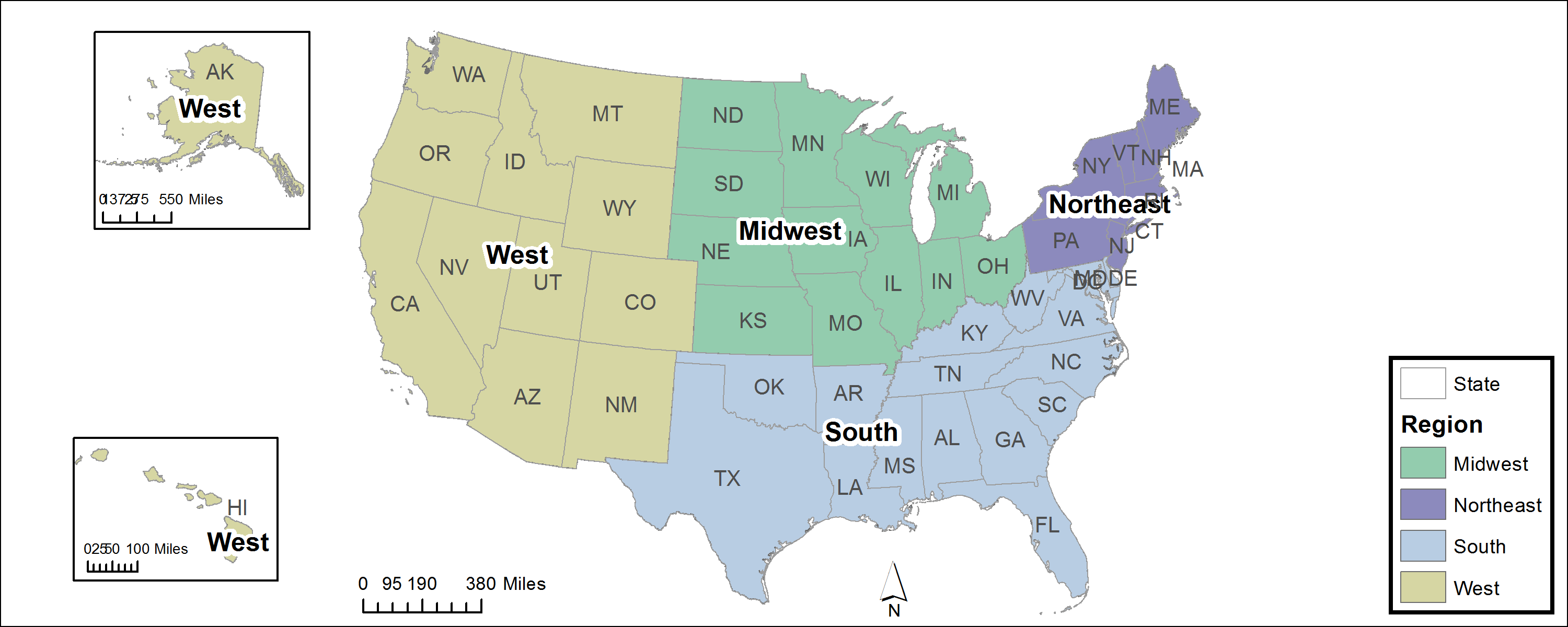
Start Date - 37 ads
USCAP
Presents: USCAP is transforming not only how we learn, but where we learn. This course will be taught by a world class faculty in one of the most historically important settings in dermatopathology, La Musée des Moulages, the dermatology wax works museum of Hôpital Saint Louis. Dynamic lectures will provide panoramic insight into relevant aspects of dermatopathology including inflammatory dermatoses, melanocytic tumors, cutaneous lymphomas, soft tissue tumors and adnexal tumors. In addition to learning cutting-edge dermatopathology, you will immerse yourselves in the medical history of dermatology and dermatopathology in one of the most important archives of cutaneous diseases. The charm and glamour of Paris with its varied culinary, artistic and architectural allures will make your learning experience even more significant!
Dermatopathology in Paris:
Featuring an Unrivaled Collection of Wax Dermatological Models
Course Director: Steven D. Billings, MD
DIAGNOSTIC PATHOLOGY UPDATE 2022
USCAP is a transformative leader in pathology education, creating better pathologists with updates in relevant information requisite for their performance and professional growth. The Academy is sensitive to the personal and cultural needs of practicing pathologists by providing conferences that welcome them with their families to destination venues. The 2022 Diagnostic Pathology Update course combines expert subspecialized, academic faculty, with exposure to the land of fire and ice, Iceland. From hiking on glaciers and volcanos to checking out the best that Reykjavik has to offer, DPU 2022 is the premier meeting for pathologists. Come experience all that Iceland has to offer!
Course Directors: Jason L. Hornick, MD, PhD, and Cristina Magi-Galluzzi, MD, PhD
USCAP Presents:
Modern Approaches to Classification of Hematolymphoid Neoplasms
Accurate diagnosis in hematopathology relies heavily on the complex integration of data from clinical presentation, conventional microscopy, immunohistochemistry, flow cytometry, and molecular and cytogenetic analyses. Diagnosis is often complicated by the fact that clinically relevant disease subsets can share overlapping diagnostic features, and both baseline appreciation for disease spectrum and appropriate application/interpretation of ancillary testing is lacking. This gap can lead to real and immediate clinical consequences for therapeutic selection and overall patient management.
While in-house testing for the vast array of available diagnostic, prognostic and predictive markers is not possible in every setting or practice, awareness of their applicability and impact on patient care is the responsibility of both the pathologist and treating clinician. This is particularly true in an era when patients are increasingly knowledgeable about genomic and proteomic analyses and the studies are easily accessible. Approaching this target by strengthening baseline knowledge and skill in application empowers the pathologist as a consultant to the clinical care team.
This superb faculty will synthesize and deliver this strategic philosophy in the context of intimate mentoring and personalized attention to detail.
Course Location: Palm Springs, CA
Course Directors: Olga K. Weinberg, MD and Yuri Fedoriw, MD
USCAP Presents:
Dermatopathology in the Desert: Pragmatic Approach to Diagnostic Challenges
The diagnosis of neoplastic and non-neoplastic disorders represents one of the most difficult diagnostic challenges in pathology. Errors in the interpretation of skin biopsies, especially in relation to melanocytic tumors, are one of the most frequent causes for litigation in surgical pathology. There are numerous pitfalls that diagnostic pathologists need to be aware of, including lack of relevant clinical information, sampling error and the wide morphologic spectrum of both inflammatory and neoplastic disorders, often showing overlapping findings and only subtle differentiating features. Accurate diagnosis is paramount to initiate the appropriate treatment. Join expert faculty as they focus on melanocytic tumor pathology, mesenchymal tumor pathology, cutaneous lymphomas and histiocytoses and inflammatory dermatoses.
Course Location: Palm Springs, CA
Course Director:
Thomas Brenn, MD, PhD
USCAP Presents:
Pearls and Palms in Surgical Pathology
Join expert pathologists as they guide you through the nomenclature, staging, and ancillary studies for your everyday surgical pathology practice. Faculty will help distinguish between what looks atypical but benign from those that look bland but are malignant. Through the case-based discussion at the Palm Springs Interactive Center, faculty will discuss histological features that are needed to make a specific diagnosis; how histology plays a role in outcomes; whether staging is important and what system to use. Topics will cover Gynecologic, Breast, Genitourinary, Gastrointestinal, Thoracic, and Head and Neck Pathology.
Course Location: Palm Springs, CA
Course Director:
Cesar A. Moran, MD
USCAP Presents:
Breast Pathology for All Ages:
Diagnostic Pearls and Pitfalls (And How to Stay Out of Trouble)
Based on multi-institutional practices handling large volumes of breast pathology cases at established cancer centers and cumulative consultation cases, this expert faculty has identified areas that pose diagnostic and interpretative challenges in recurrent problematic areas deserving attention: intraductal epithelial proliferations and microinvasive carcinoma, lobular neoplasia including LCIS variants, papillary lesions, and benign vs malignant spindle cell lesions. The interpretation of immunohistochemical stains (IHC) with focus on predictive markers can also be challenging. This interactive microscopy course is designed to illustrate distinct challenging entities and problematic issues, with practical approaches to their resolution in real time, in the context of intimate mentoring.
Course Location: Palm Springs, CA
Course Director:
Edi Brogi, MD, PhD
USCAP Presents:
The 2022 Classification of GU Tumors: Don’t Let the New Blue Book Make You Blue
Classification, grading, staging and reporting of GU tumors have evolved significantly in recent years as molecular profiling has made a significant impact on tumor taxonomy and classification. Precision medicine and targeted therapies have emphasized the critical role of histopathological classification in prediction of prognosis and therapeutic response for cancer. These important changes are codified in the WHO Blue Book on Tumors of the Urinary System and Male Genital Organs. The 5th edition is eagerly anticipated in the spring of 2022 and is a complete revision of the 4th edition published in 2016. Expert faculty will guide attendees through the important changes and “new things” in the 5th edition WHO Blue Book in order to generate diagnoses and reports that meet the contemporary patient management needs.
Course Location: Palm Springs, CA
Course Director:
Ming Zhou, MD, PhD
USCAP Presents:
GYNECOLOGICAL PATHOLOGY: ESSENTIAL KNOWLEDGE FOR DIAGNOSTIC PRACTICE
As a major clinical subspecialty, diagnostic gynecological pathology involves a large number of disease entities and often complex histological variants. Recent developments, particularly molecular genetic discoveries, have introduced new and reclassified entities as well as refined diagnostic criteria for many existing disease processes, calling for knowledge update for practicing pathologists. This unique four-day training course offers an engaged learning experience around a multi-headed microscope with world-class faculty delegated from the International Society of Gynecological Pathologists (ISGyP). While providing comprehensive coverage, the course emphasizes knowledge gains in morphologic recognition and using ancillary immunohistochemistry and molecular genetic studies in the most challenging areas, particularly new disease classifications/diagnostic criteria. Extensive time for one-on-one interaction with faculty constitutes the salient component of this extraordinary learning experience.
Course Location: Palm Springs, CA
Course Directors:
Pei Hui, MD, PhD
USCAP Presents:
TUTORIAL IN PATHOLOGY OF THE GI TRACT, PANCREAS AND LIVER
Gastrointestinal pathology emerged as a subspecialty in the mid-to-late 1980s, coincident with utilization of endoscopy with mucosal biopsy for diagnosis and management of patients with gastrointestinal disorders. The widespread availability of endoscopy coupled with advances in tissue acquisition techniques have drastically increased the number and variety of gastrointestinal samples pathologists encounter in daily practice. As a result, pathologists are now required to provide comprehensive diagnostic information based on review of scant material. Classification of tumors is often completed based on interpretation of immunohistochemical stains coupled with molecular analyses to identify druggable targets or underlying germline conditions. Pathologists also direct the evaluation of patients with gastrointestinal complaints, particularly when patients have persistent symptoms or are immunosuppressed. Thus, they must be able to hone in on key features present in biopsy material in order to narrow the differential diagnosis and better direct patient care. This course is intended to address these needs in a succinct and pragmatic fashion.
Course Location: Palm Springs, CA
Course Directors:
Rhonda K. Yantiss, MD
USCAP Presents:
THORAX DECONSTRUCTED –
Experts’ Guide to What Can Go Wrong Inside the Chest
Pathologists are generally unfamiliar with a variety of entities in lung, pleural, cardiac and mediastinal pathology, leading to diagnostic errors and creating practice gaps requiring attention. The panorama covered in this interactive microscopy course includes interstitial lung disease, lung infections, pulmonary vasculitis, mesothelial proliferations, mediastinal neoplasia, lung allograft rejection and mimics, heart transplant rejection and distinction from mimics, best practices for optimal triage of lung cancer samples for molecular testing, the cytology of pleural effusions, criteria for aortic vasculitis and other large vessel pathology, recognition of heart valvular pathology, criteria for diagnosis of giant cell arteritis, native heart biopsy interpretation and thoracic soft tissue neoplasms. This faculty ensemble has the professional experience to improve your practice with confidence. You will see cases that make an indelible impression. Breathe easy: this is USCAP, at the heart of education.
Course Location: Palm Springs, CA
Course Directors:
Henry D. Tazelaar, MD & Andrew Churg, MD













